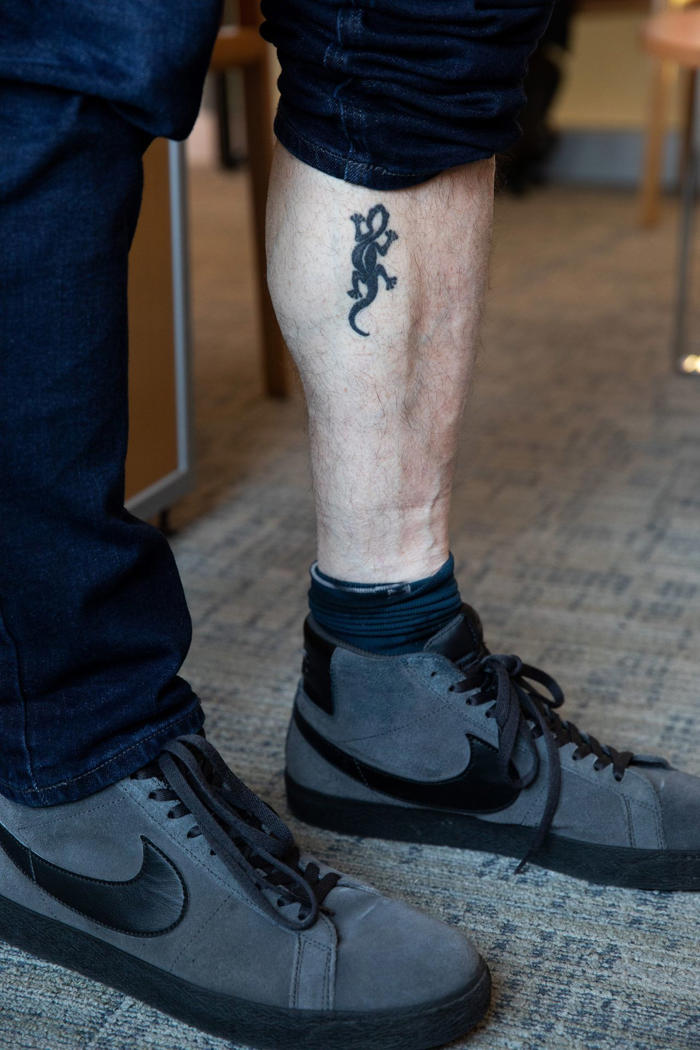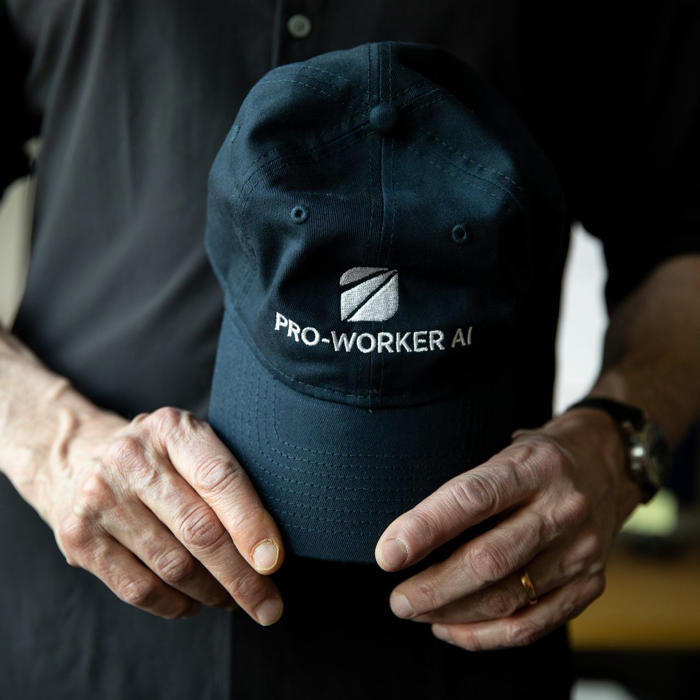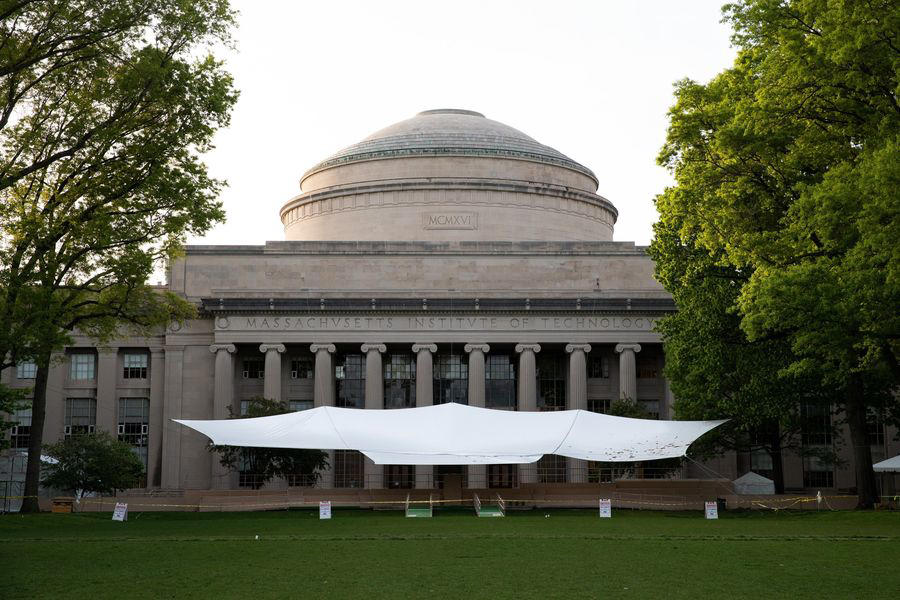How a College Dropout Changed What We Know About the U.S. Economy
The man whose thinking helped change our understanding of the American labor market lives in perpetual motion. If he isn’t working, he’s disassembling a broken kitchen mixer, or teaching himself how to splice rope, or listening to podcasts at double speed while doing the workout routine he calls his “seven-minute twerkout.”
David Autor cut a peripatetic path through most of his 20s as a college dropout and self-taught mechanic, before he stumbled into economics.
“I fell into it assbackwards,” he said.
Today, his work is helping shape how the White House is approaching the biggest labor issues from responding to the threat of a “China Shock 2.0” to thinking about the economic impacts of artificial intelligence.
Autor has shown how the rise of the computer was hurting middle-class jobs. He sounded the alarm that workers in the South were getting pulverized by Chinese imports, years before Donald Trump was elected president, playing off this fear.
Now, Autor’s research has taken an unexpectedly optimistic turn: He has shown how, after the pandemic struck, low-wage workers have started catching up. He holds a hopeful view of AI, arguing that it could help low-skilled workers.
“To me, the labor market is the central institution of any society,” said Autor, 60 years old. “The fastest way to improve people’s welfare is to improve the labor market.”
Lawrence Katz, a Harvard University economist who has trained a generation of labor economists, said Autor has “probably been the most insightful and influential scholar of the labor market” in decades.
The Biden administration’s efforts to shield domestic manufacturers from a rising tide of Chinese imports has been guided by Autor’s work. The Council of Economic Advisers’ annual report to the president this year is riddled with references to his research.
Autor grew up in Newton, Mass., the middle child of two psychologists, Sanford and Sherry Autor. He remembers himself as a painfully shy introvert. His mother recalls a kid who loved his dog and spent hours taking things apart.
He dropped out of Columbia University after three semesters, did computer consulting work, bought a motorcycle and taught himself how to fix it. After a couple of years, he returned to college and studied psychology and computer science at Tufts University.
When Autor graduated in 1989, just shy of 25, he wasn’t sure what to do. So he drove across the country in an eight-forward-speed, stick-shift 1980 Dodge Colt RS that cost $250. On the way, he heard a radio segment about a program that taught computer skills at Glide Memorial Church in San Francisco’s Tenderloin district.
Autor started working there, and his views on labor began taking form. The people he was working with were poor, and what they desired was basic: decent jobs, stable lives.
After three years he started graduate studies in public policy at Harvard’s Kennedy School.
There, at age 29, Autor took his first economics class. It blew his mind.
“This is the thing that puts together the questions I care about with methods that I like,” Autor recalled. “Why didn’t anyone tell me about this?”
As he prepped for the job market, a fellow Ph.D. student asked him whether he was really going to wear his gecko earring to an interview. Of course, Autor replied. He’d gotten it when he and his wife, Marika Tatsutani, were first dating and split a pair.

(Autor now bears a gecko on his calf to match his earring, the souvenir of a father-daughter trip to the tattoo parlor.)
He was surprised to get an offer from MIT’s economics department. It often grants jobs to Harvard’s economics Ph. D.s—but not public policy Ph.D.s.
During Autor’s early days as an economist, an “aha!” moment came during a series of conversations with Harvard’s Frank Levy and MIT’s Richard Murnane. At one point, Levy suggested they could measure how hard a task is for humans by measuring how much code it would take for a computer to accomplish it. The premise: what is hard for computers is hard for humans.
Autor pointed out that it was the opposite. Adding up hundreds of numbers is hard for people but trivial for a computer. Figuring whether something left on a desk is trash is easy for people but enormously hard for computers.
They concluded that computers are good at tasks that are cognitive but also routine—the type of work done by bookkeepers and switchboard operators.
As a result, computers were displacing jobs that were once tickets to the middle class for workers without college degrees. Meanwhile, more educated workers were benefiting from the increased productivity computers were giving them. Low-paid service work, like cleaning the homes of those educated workers, wasn’t hurt either: Computers couldn’t put sheets on beds.
Their paper was published in 2003. It has been cited in 129 academic publications so far this year alone.
In those early years at MIT, Autor said he felt like an impostor. He’d had to catch up quickly on math in graduate school, auditing calculus at Harvard at age 30 with a bunch of 18-year-olds. Now he was supposed to teach economics to MIT whiz kids. At night, in his office, he cried.
He put in long hours, too. He and Tatsutani had young children at home. “My kids think I’m a good parent,” he said. “But my wife and I both know that I wasn’t when they were young.”
In a field where long hours are lionized, Autor is known for working really long hours and devoting time to his students.
“No one knows how he finds time, but he finds time,” said Sydnee Caldwell, a former student of his who is now a professor at the Haas School of Business at the University of California, Berkeley.

He throws himself into hobbies like he throws himself into work. He loves sailing: He got hooked at 14 when a friend took him on the Charles River and they capsized. He loves hockey, too: He started playing after he took his daughters skating when they were little and broke his kneecap.
A few years after Autor got tenure, the 2008 financial crisis hit. Construction work dried up. Unemployment soared. And then there was China’s rise as a global manufacturing juggernaut. Economic orthodoxy held that the benefits of trade far outweighed any drawbacks.
With economists David Dorn and Gordon Hanson, Autor dug in. What they found: People in communities competing with Chinese imports, such as furniture-making towns or at textile-manufacturing centers concentrated in the South, were losing their jobs. Often, they were forced onto food stamps and disability.
The research, first released in 2011, was controversial. But Donald Trump, campaigning for the presidency in 2016, successfully tapped into exactly that frustration. Indeed, later work would show that the more affected an area was by “the China Shock,” the larger the rightward shift among that area’s white voters.

When Covid arrived and the unemployment rate shot to nearly 15%, Autor found something he didn’t expect: As the job market came back, low-wage workers’ wages rose at a faster clip than their higher-paid counterparts’.
Working with Arindrajit Dube and Annie McGrew from the University of Massachusetts, Amherst, Autor sought to understand why.
Labor economists have long recognized that low-wage, less-educated workers often aren’t well matched into jobs where they can be more productive and make more money. The dishwasher at the restaurant on the corner of State and Main might not know there is a better-run restaurant a few blocks away that pays more.
The pandemic changed all that. First, it shook poorer workers out of their jobs. Then, when the economy reopened, many of them found better work that paid more. Government relief might have helped, too. With more money in the bank, people had the luxury to take the time to find a good job.
The outcome: The still-large pay gap between the highest-paid workers and the lowest has substantially narrowed.
When it comes to AI and workers, Autor is hopeful. Although computers hurt many middle-class jobs, Autor thinks AI could do the opposite. People with less education will be able to do more work that can now be performed only by highly trained elite workers, such as computer coding.
“It’s a mistake at this point to think that it’s just more of the same,” Autor said. “I don’t think it is, and that’s great.”

Write to Justin Lahart at [email protected]
